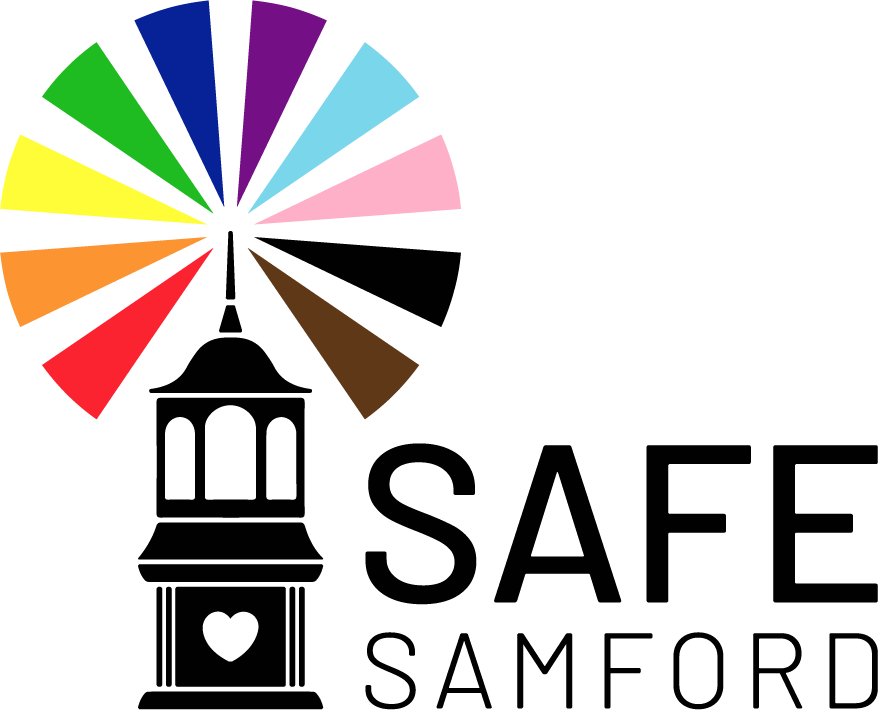"they have fought depression, lived in fear, and felt isolated and hopeless"
Dear Dr. Westmoreland,
I write as an alumna from the class of 2006. I was active in Student Ministries, Residence Life, and Step Sing, studied Sociology and German, learned to swim for exercise, and loved my experience at Samford until major depression pushed me into a very dark place and almost derailed my degree completion.
Before choosing to attend Samford, I was already aware that I was attracted to women. As someone who was raised in a conservative, Southern Baptist household in Alabama, this attraction was distressing to say the least. In fact, it was so upsetting that I changed my mind about attending Judson College (where I would be surrounded entirely by women) and selected Samford instead.
Samford offered the space to temporarily ignore myself as a sexual being. This ignorance isn’t a luxury that’s often afforded to college-aged students, but because discussions of sexuality (even heterosexuality) were so scarce at Samford, it wasn’t too difficult for me to disregard the topic altogether. I was so thoroughly sexually repressed from years of pushing down my feelings to better fit into my SBC lifestyle that I didn’t really have much interest in dating throughout my early twenties.
Academically, I found Samford challenging, and I often lived up to that challenge. Studying sociology is what impacted me the most. My professors and classmates challenged me to think in terms of how people move, what drives them, what influences them. One class, in particular, had a lasting effect on my development as an individual thinker. Although at least half of Dr. Marler’s Sociological Theory class felt like it was outside my grasp, I learned so much; it shook me to my core. Each time Dr. Marler introduced a new theory, I understood it first in terms of how the people who raised me had been guided by the framework of that particular theory, and then, looking outward, I understood the role religion played in bringing order to the world. Sociologically speaking, religion brought social order and stability to groups of people, or it was a source of power and social coercion, or it provided the symbolic meaning on which behavior could be founded.
I finished that class with a gut feeling that my specific religious upbringing had been a lot more about controlling me than about teaching me to be a loving neighbor in a challenging world. The class, as fascinating as it was, was also the catalyst for a 4-year bout of depression that plagued the rest of my time at Samford and my years following graduation. It had woken me to a reality that felt too harsh to handle.
That being said, I wouldn’t trade that class or my overall academic experience at Samford for anything in the world. What I have always appreciated about Samford is that, even as a Baptist institution, it didn’t exist in order to inundate students with the same dogma that they’d likely grown up hearing. Samford was a true institution of higher learning—a place for adolescents to come of age and for young adults to figure out the world on their own terms. While my professors didn’t urge me to radically change my religious beliefs or worldviews, they created a safe space in which I could discuss my ideas, dispel my doubts, and become comfortable existing in the grey area that is most of life to true learners.
It wasn’t until some years after I finished my studies at Samford that I really started asking myself questions about my sexuality. I was way too scared to get anywhere close to that subject while in college. I often wonder what my life might have looked like if there had been a safe space for me to work through my questions on campus. If there had been room at the table for someone like me, I could imagine myself not having eventually cut ties with the Baptist Church. As it turned out, I eventually did cut those ties before finding the space to confront my sexuality. Once I got to a healthy place internally, I was able to turn back to the Church—with drastically different beliefs, to be sure—and find a place at the table. See, I eventually realized that, after I was able to identify and remove all the nasty control mechanisms from my religious upbringing, I was left with a framework of unconditional love and acceptance. That is to say, I was left with the unadulterated teachings of Jesus, the cornerstone of Christianity. I credit the Samford Sociology Department with giving me the tools to think critically about the social forces in my life.
Unfortunately, many of my friends in the queer community of Samford alumni did not have the same positive overall experience I did. Most queer college students are at a critical point in their lives: the end of adolescence. The traditional college years are such a sacred and tender coming-of-age time with long-reaching implications. Many of your students were raised to believe that there is something inherently shameful about them; because of their shame, they have fought depression, lived in fear, and felt isolated and hopeless. A lot of them are afraid to speak because they feel they embody taboo. They deserve access to the freedom of inquiry, personal empowerment, and a safe and supportive community. Give Samford LGBTQ community that opportunity in full. It is within your power, and it is your responsibility to provide it to them now.
My deepest thanks,
Jenn Edgar, Class of ‘06
